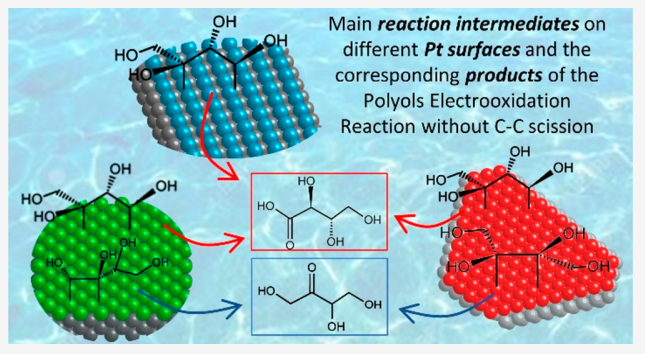
Electrooxidation of C4 Polyols on Platinum Single-Crystals: A Computational and Electrochemical Study
Abstract: Many polyols are abundant and cheap molecules highly spread in the biomass. These molecules have an enormous potential to be used in electrochemical devices to generate energy and/or value-added molecules. The electrooxidation of polyols can produce different substances of interest in the chemical industry concomitantly to high purity hydrogen in electrolyzers. The cost in the production of all these chemicals depends, among other factors, on the develop of more active and selective catalysts. However, in order to search for these materials using computational experiments, it is mandatory to have a better understanding of the fundamental aspect of the reactions, which permit to base the search on the adsorption energies of one or more key reaction intermediates. To contribute to this task, we performed (spectro)electrochemical and computational experiments to study the electrooxidation of C4 polyols. We show that the electrooxidation of polyols does not depend on the relative orientation of their OH groups. Besides, using Pt single crystals, we demonstrate that the trend for the oxidation of the primary carbon (relative to the secondary) increases in the order Pt(111) < Pt(100) < Pt(110) and that this result can be extended to polyols with longer carbon chains. Finally, computational experiments permit us to rationalize these trends looking at the relative stability of double dehydrogenated intermediates on the Pt basal planes.
Author(s): Gabriela Soffiati, José L. Bott-Neto, Victor Y. Yukuhiro, Cléo T. G. V. M. T. Pires, Carlos C. Lima, Cinthia R. Zanata, Yuvraj Y. Birdja, Marc T. M. Koper, Miguel A. San-Miguel, and Pablo S. Fernández*
J. Phys. Chem. C
Published: June 16, 2020




